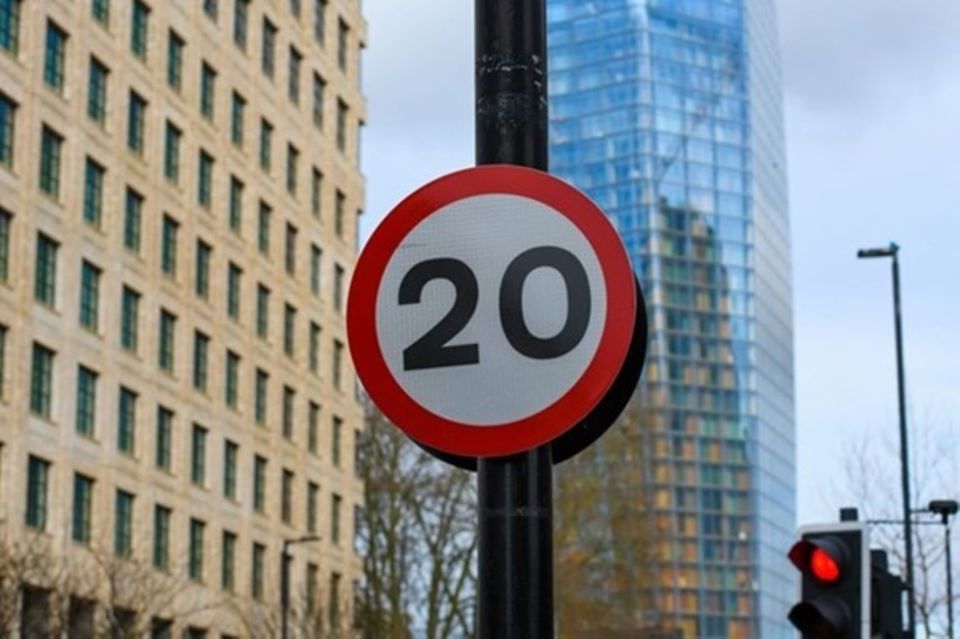Two-fifths (39%) of drivers want the default speed limit on roads in built-up areas to be lowered from 30mph to 20mph, new research suggests.
Road deaths and serious injuries caused by driver speed rose significantly last year, according to new analysis of Government road casualty data by Brake.
Some 1,766 people died on UK roads (1,711 in Britain, 55 in Northern Ireland), a 10% increase on figures from the previous year.
The road safety charity’s analysis also found that in the same period, road deaths caused by drivers exceeding the speed limit rose by 20%.
Brake also carried out a public opinion survey, asking more than 2,000 drivers about their driving habits and attitudes to speed and speed limits.
As well as finding that a minority of drivers supported a default 20mph speed limit, similar to that which has been introduced in Wales, the survey also found that 92% of drivers think that speed limits are essential for the safety of our roads.
Despite this, more than a third (34%) said they sometimes or often drive faster than the speed limit, and 40% think that driving just a little bit over the speed limit doesn’t matter.
Brake is releasing the survey results at the start of its biggest annual road safety campaign, Road Safety Week, which runs from November 19 to 25.
The charity is calling on everyone to join a national conversation about speed, to raise awareness of the dangers of excessive and inappropriate speed, and challenge why so many people still think it is acceptable to drive faster than the speed limit.
Ross Moorlock, interim CEO at Brake, said: “Road death is sudden. It's traumatic. It sends shockwaves across families, schools, workplaces and communities.
“This year, we have already supported more than 1,500 people affected by road crashes through our National Road Victim Service.
“Today, five people will be killed on our roads. And tomorrow, another five won’t make it home to their families. And so on, and so on, until we all say 'enough’ and start taking responsibility for each other’s safety on the road.”
Road Safety Week began yesterday (November 19) to coincide with the World Day of Remembrance for Road Traffic Victims, for which people across the world lit candles in memory of those killed or seriously injured on roads.
Brake worked with local councils across the UK to get public buildings and other landmarks lit up in yellow, to show support for road victims.
This year, more than 3,400 schools, communities, organisations and emergency services, together representing more than 17 million people, have signed up to take part in Road Safety Week by organising local activities, sharing important road safety messages and posing the question: If five people die on UK roads every day, why do we still think it is ok to speed?
Brake has provided free resources to everyone taking part in Road Safety Week, including campaigns toolkits, lesson plans and assemblies for school, as well as factsheets, films, posters and more for businesses, local communities and campaign groups.
Moorlock continued: “The speed we choose to drive at can mean the difference between life and death.
“Our speed dictates whether we can stop in time to avoid a crash, and the force of impact if we can't stop.
“This Road Safety Week, whoever you are, and however you travel, I urge you to join the conversation and talk about speed.
“Please talk to as many people as you can to find out why, when five people die on our roads every day, so many of us still choose to drive too fast.”
Road Safety Week 2023 is organised by Brake, sponsored by Arval UK, Autoglass and DHL Supply Chain, and supports the Department for Transport’s Think! campaign.
Ian Pearson, head of insurance at Arval UK, said: “We’ll be encouraging our employees, our customers and their drivers to get involved and raise awareness of the damage that speeding can cause.
“This week we’ll be sharing Brake’s social media posts and holding events throughout our offices – it all helps to remind drivers that speeding is simply never smart.”
Ed Colley, head of digital and marketing at Autoglass, added: “At Autoglass, we fit safety as standard. That’s why we are proud to be sponsoring Road Safety Week and doing what we can to help get people talking about the dangers of speeding.
“Although we want to fix vehicle glass as quickly and effectively as possible, we also understand the importance of responsible driving and avoiding excessive speeds once back on the road.”
Number of people killed or seriously injured on UK roads, 2021 and 2022, by region
|
Region |
2021: Number of people killed |
2022: Number of people killed |
2021-2022: Percentage change in number of people killed |
2021: Number of people killed or seriously injured |
2022: Number of people killed or seriously injured |
2021-2022: Percentage change in number of people killed or seriously injured |
|
North East |
51 |
54 |
6% |
929 |
997 |
7% |
|
North West |
190 |
173 |
-9% |
3,105 |
3,336 |
7% |
|
Yorkshire and The Humber |
160 |
163 |
2% |
2,793 |
3,153 |
13% |
|
East Midlands |
153 |
175 |
14% |
2,464 |
2,687 |
9% |
|
West Midlands |
133 |
163 |
23% |
1,903 |
2,026 |
6% |
|
East of England |
164 |
206 |
26% |
2,551 |
2,829 |
11% |
|
London |
75 |
103 |
37% |
3,581 |
3,967 |
11% |
|
South East |
235 |
249 |
6% |
4,501 |
4,970 |
10% |
|
South West |
168 |
157 |
-7% |
2,235 |
2,495 |
12% |
|
Wales |
86 |
95 |
10% |
1,313 |
1,336 |
2% |
|
Scotland |
143 |
173 |
21% |
1,760 |
1,945 |
11% |
|
Northern Ireland |
50 |
55 |
10% |
859 |
965 |
12% |
|
Total (United Kingdom) |
1,608 |
1,766 |
10% |
27,994 |
30,707 |
10% |
Number of people killed on roads in Britain, in crashes where speed was a contributory factor, 2021 and 2022
|
Contributory factor reported in collision |
2021: Number of people killed |
2022: Number of people killed |
2021-2022: Percentage change in number of people killed |
|
Exceeding speed limit |
253 |
303 |
20% |
|
Travelling too fast for road conditions |
86 |
85 |
-1% |
|
Exceeding speed limit or travelling too fast for road conditions |
339 |
388 |
14% |
|
Any contributory factor |
1339 |
1538 |
15% |
























NeilW - 20/11/2023 17:38
The article reports on the views of drivers about 20mph default limits but the decisions of local authorities about whether to enforce them need to be based on the views not only of drivers but of residents, pedestrians, cyclists, local businesses and others. If we're to make our towns and cities safer, as well as encourage more active travel, consistently lower speed limits are surely an important part of the mix. Experience shows that piecemeal approaches to urban speed limits provoke opposition and work less well.